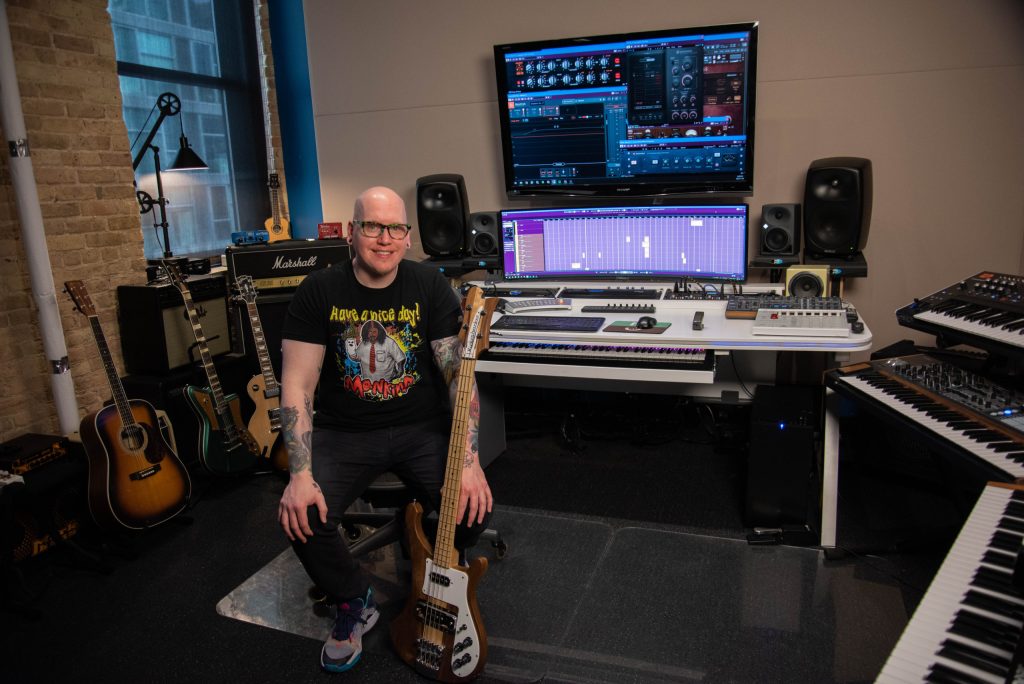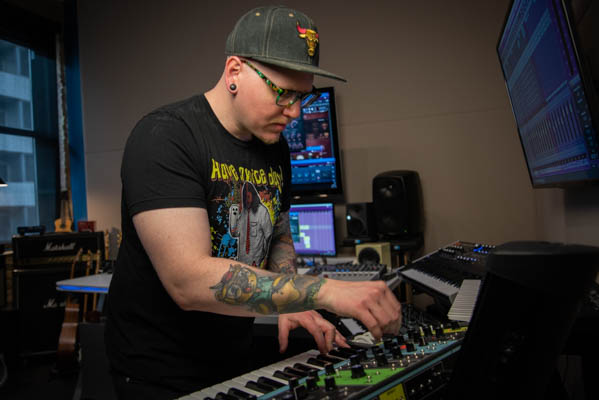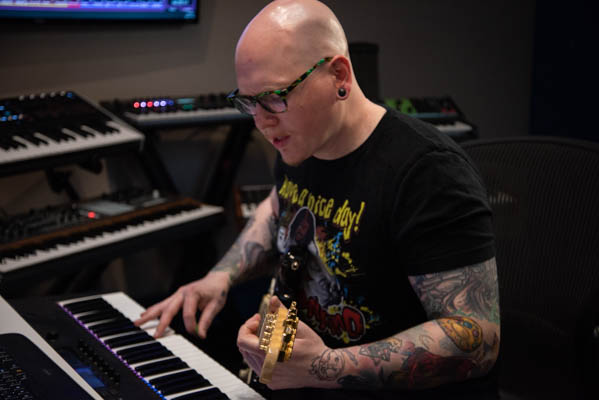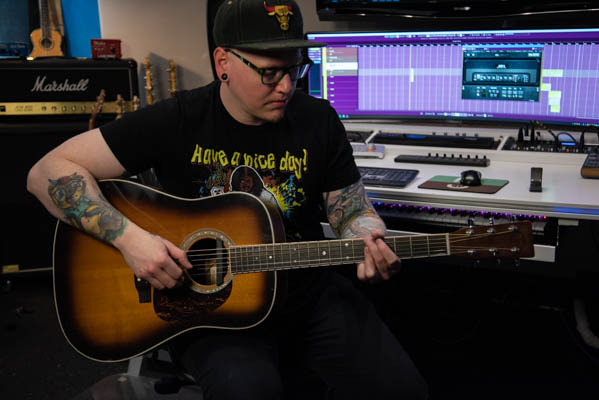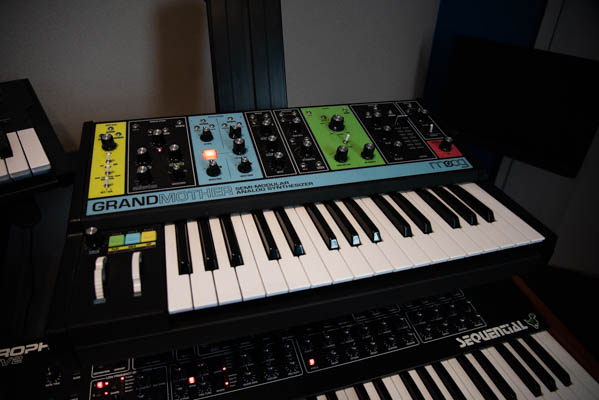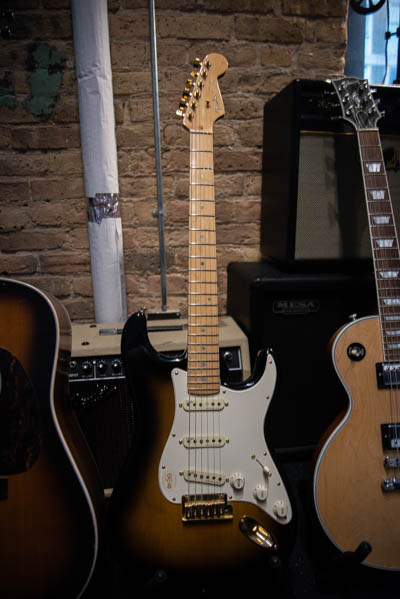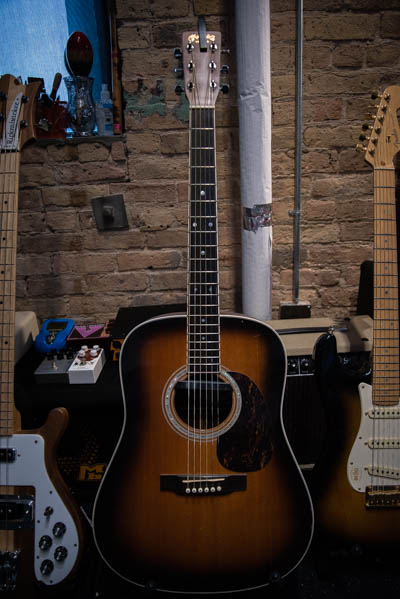Devin Delaney is the perpetually working head composer of Noisefloor’s music department. As a creative, Devin brings a unique blend of versatile musicianship, technical skill, artistic openness, steadfast diligence, as well as a deep emotional intelligence as a storyteller. We had a chat with Devin about his creative process and how he works with clients, read it all below!
What is the first step you take on a new project?
Usually we start off a new project with a creative call where we talk about our scope, vision, references, dreams, aspirations, and maybe our general musical direction too. On more linear content, this can be extended into a spotting session where we dissect the film/spot/project scene by scene to make sure we are hitting all the right notes (literally and figuratively). We will talk through the different moods, instruments, and energies. Which helps us in establishing an outline or a roadmap for the score.
After that, my first step in my writing process is to start demoing out or sketching a bunch of musical ideas to share with the client.
Do you use research in your process? How is it helpful?
100% – everything we do starts with listening. Music streaming services are extremely useful for helping me do a deep dive into whatever I am creating. For almost every job, I create a corresponding playlist that I use to draw some inspiration from and study. It can be a constant point of reference for me when I am starting my day as well as when I get stuck. Personally, I think references are absolutely awesome to use, they really enable musicians and nonmusicians to communicate ideas. Music and creative direction can feel like different languages, so using references help establish some common ground.
How do you make sure that you and the client are on the same page?
Communication and transparency. We always try to get to a general understanding of where expectations, scope, and timelines sit. Making music can be a mysterious, multistep process. Helping a client know when is best to give feedback, at different milestones, can be absolutely critical to staying on schedule and budget. For example, if we are changing lyrics after recording the vocal session, we might be in for a bad time! So we really emphasize just open and honest communication about a given score/composition. When it comes to feedback, I often say, “Just be blunt.” That gut reaction can be rough around the edges, but its honesty is usually where the golden information resides. Our first swing isn’t always right, and we don’t ever expect it to be, but I didn’t get into composition because I like making music in a vacuum. I want to elevate the storytelling, make the clients happy, be challenged, hear different perspectives, and hopefully churn out some beautiful music in the process.
What are some things clients can do that are helpful to your creative process?
Well, outside of increasing the budget-so we can do fun stuff like getting instrumentalists, orchestrators, and singers-there are some very affordable and easy things a client can to do help a composer out!
Listening in the right context or environment can be super helpful. By their nature, demos are going to be rough around the edges, so then playing them on a terrible laptop or smartphone speaker isn’t going to do them any favors. It is like picking out your outfit with a blindfold on.
Additionally, creative changes / revisions are absolutely inevitable and are always expected, but efficiently communicating those changes in a timely manner is essential. We can make any change happen, it just takes time, money, and elbow grease. But when a change comes in crazy last minute, completely out of scope, or after recording sessions have happened – it can put intense stress on the elbow grease / human component.
Would you rather work on a project with a lot of creative constraints or a project with total creative freedom?
Ya know, I am just happy to work on a project. As a composer for multimedia, my #1 job is to help tell the story. So, I am acting both as an emotional thread for the viewer and as a kind of translator for the director/creative team. Taking their vision, direction, and creative – and turning it into a soundtrack. So if you have a strong vision share it, you are just going save everyone time!
As a collaborator, there is a game of trust going on – I want a director/creative to trust in my expertise, skill, and perspective – that’s ideally why they hired me. It’s amazing to get some freedom to experiment, use my voice as a composer, and really dig into doing my thing. But it’s the client’s baby, and they are signing the check, so their perspective is essential if I want to be a good collaborator. Then, no matter what, I think we should be actively thinking about the audience’s experience and perspective. So those multiple perspectives will undoubtedly influence our creative.
So in other words, some may view a bunch of creative constraints as limiting, while others may view it as having a defined vision. Musically, if we want a cohesive product, we are going to be building a sonic world and creating our own set musical rules that define it. So between the weight of those multiple perspectives and just the nature making music for something else, constraints are just part of the art form!
How do you deal with creative blocks?
Step outside, take a walk, go for a drive, wander around Target, lift a few weights, or just ingest some other media. Basically, if I can, I’ll take the time to step away and let inspiration strike. The amount of times I have gone home, started a game or movie, heard a brilliant cue, and went “Oh crap, that’s the vibe/instrumentation/whatever I was searching for!” – and all I had to do was stop working for a minute!
When time isn’t a luxury, it’s about roadmaps, good outlining, and relying on what works. The first thing I try to build in a scene is a sort of skeleton piece that functions as a roadmap. For example, if I’m doing something densely orchestrated I may just compose the basic idea with piano and cello patches, get the big changes in place, then start to get arranging and orchestrating later on. There is always work to be done on a given piece of music, so I may shift towards some easier tasks to keep the piece flowing. For example, if need a big epic brass melody over my mesmerizing strings to really sell a hero, but that melody just is coming along… I may shift over to percussion or some other support part, that I know needs to be done – get that out of the way, then move back to my problem section/area of the piece.
What is your favorite piece of equipment?
Admittedly, I am a bit of a gear head. There is always a new toy on the horizon that I’m obsessing about… so this answer changes frequently!
Today, it’s the Moog Grandmother – it has consistently found its way on almost every piece I create. I love how silly looking the color scheme is, the semi-modular patching cable mess is charming, and it just sounds good. It was one of the first hardware synths I splurged on, and really made me appreciate hardware synths like never before!
I also have to mention my Custom Martin and Fender 75th Anniversary Deluxe Strat – I have a bunch of guitars, but I have had these two the absolute longest. They have been the source of so much music, so many recordings and took me from my highschool punk rock days in Oak Park to my undergrad at Berklee all through the past decade plus at NF.
What have you been listening to lately?
Turnstile has reignited my love of rock recently. I’ve also been listing to a lot of Genesis Owusu, Metric, and J Cole. I am just about to start A Plague Tale: Requiem. I am sure Olivier Deriviere’s score will be stunning – I absolutely loved orchestration and themes from the first game! And when my ears need a rest, which they often do, a quality podcast from The Ringer, Crooked Media, or the Last Podcast Network.
